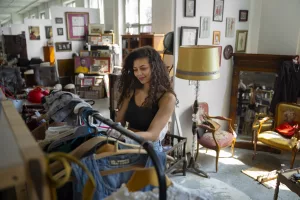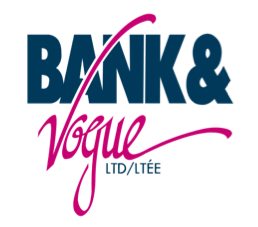Executive Summary
In today’s climate-conscious economy, businesses in the secondhand wholesale market must walk a fine line: generating appealing offers and promotions without encouraging overconsumption. For B2B stakeholders, particularly those targeting diverse audiences across retail, informal markets, and digital commerce, understanding consumer psychology—including gender-based behavioral insights—is vital. This white paper explores how to build ethical promotional strategies and examines the differing consumption patterns of men and women to better support sustainable growth.
Part 1: Ethical Promotions Without Fueling Overconsumption
1.1 The Pitfall of Overpromotion
Traditional retail promotions often hinge on urgency, scarcity, and discounting. While effective, these tactics can backfire by promoting unsustainable purchasing habits, especially when used in the secondhand sector where sustainability should remain central.
1.2 Guiding Principles for Ethical Promotion
- Promote Value, Not Volume: Emphasize product durability, uniqueness, and environmental impact rather than encouraging bulk buying.
- Highlight the Circular Economy: Frame promotions around re-use, waste reduction, and conscious purchasing.
- Seasonal or Thematic Offers: Link promotions to events like “Back to School Reuse Month” or “Circular Fashion Week” to add educational value.
- Bundle Smartly: Instead of bulk discounts, offer curated bundles (e.g., “Tropical Mix Pack” or “Credential Bestsellers”) that help retailers meet actual customer needs.
- Transparency in Supply: Share insights into where goods come from and how they’re processed, increasing trust and ethical alignment.
Part 2: Gender Differences in Buying & Consumption Behavior
2.1 Key Insights From Behavioral Studies
- Studies suggest that women, on average, are more likely to engage in shopping through social and experiential channels, especially in sectors like fashion resale. Research also shows they tend to be more engaged in sustainability-related concerns and respond positively to value-based storytelling.
- Studies also indicate that men, generally speaking, may approach shopping more functionally—buying only when there is a clear need. They are often more focused on utility, pricing efficiency, and brand trustworthiness.
While these trends can inform strategy, individual preferences and cultural contexts should always guide decision-making. We recommend supplementing these insights with direct customer data whenever possible.

2.2 Implications for B2B Marketing
- For Retailers Serving Women:
- Promote collections with sustainability messaging.
- Emphasize variety and personalization (e.g., vintage, fashion-forward selections).
- Leverage storytelling (e.g., garment journeys or impact metrics).
- For Retailers Serving Men:
- Focus on function, pricing efficiency, and convenience.
- Provide data-driven insights (e.g., bestsellers by region, seasonality).
- Offer value packs categorized by durability or intended use (e.g., workwear bundles).
Part 3: Responsible Promotion Strategies for B2B
3.1 Data-Informed Targeting
Use customer data to create demand-responsive offers rather than blanket promotions. For instance, if tropical mixes are popular in Central America during spring, tailor your messaging accordingly.
3.2 Co-Branded Educational Campaigns
Work with retailers to create promotional campaigns that educate end customers about textile waste, extending garment life, or secondhand fashion tips.
3.3 WhatsApp & Social Media as Ethical Tools
In Latin America and other informal markets, WhatsApp and Instagram are key. Use these platforms not just to push promotions, but to build a community around conscious resale.
3.4 Metrics Beyond Sales
Track metrics like resale speed, customer return rates, and engagement with circular content to evaluate promotional success more holistically.
Conclusion
As a global secondhand wholesaler, Bank & Vogue is committed to helping partners grow their businesses ethically. Promotions should be a vehicle for education, value-sharing, and sustainability—not overconsumption. By integrating gender-aware marketing insights and responsible strategies, businesses can meet both sales goals and social impact targets.
For help customizing your inventory or building ethical offers, reach out to our team. Let’s build a more circular world together.
About Bank & Vogue
We are a global leader in the secondhand wholesale industry, connecting supply with demand while promoting circular economy solutions through used clothing, footwear, and hard goods.







